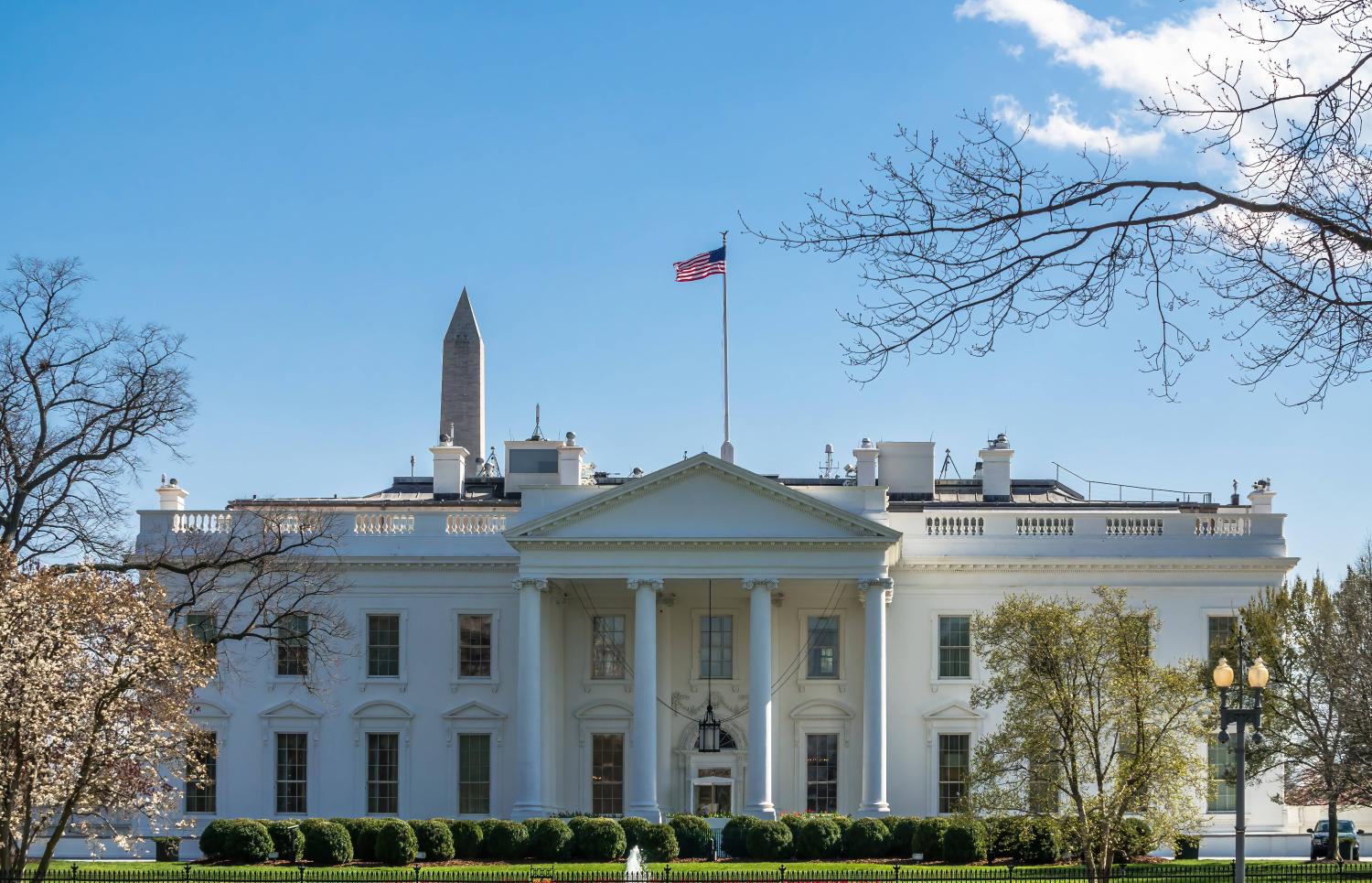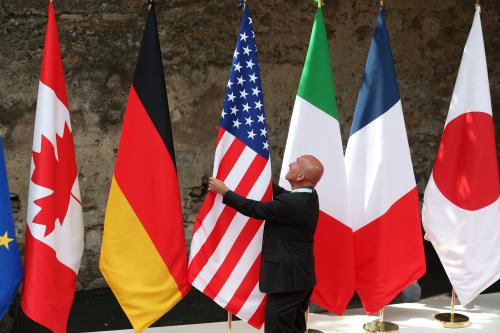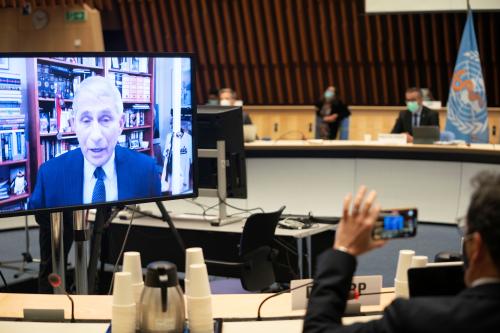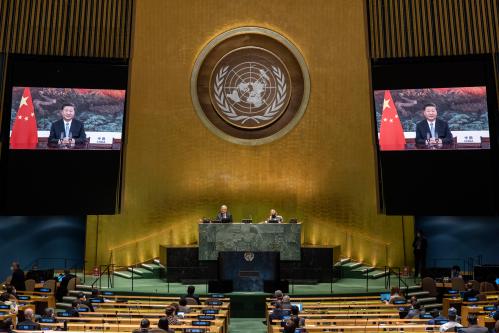“A Strategic Roadmap for Reentry 2021 and Beyond: Advancing Institutional Commitments in a New Geostrategic Environment” was a virtual workshop, sponsored in part by Carnegie Corporation of New York, and co-convened by the University of Pennsylvania’s Perry World House and the Foreign Policy Program at Brookings. The workshop was held over two half days on October 15-16, 2020.
Executive summary
As the Biden administration takes office, it confronts a radically transformed global landscape in which it must advance a range of U.S. priorities through multilateral policy tools, including international institutions, international law, and multilateral diplomacy. Neglect of the international order and exits from international commitments under the Trump presidency have positioned the United States as a relative outsider in the multilateral policy space, decreasing its leverage and influence. Simultaneously, a rising China has become far more effective and assertive in shaping international norms and setting the agendas of international institutions. Even with unified Democratic control of the U.S. government, the new administration’s policy options are severely constrained by deep political divisions over America’s role in the world and the value of the international order. This new landscape demands fresh approaches to how the United States works with its partners, confronts its rivals, and advances its interests multilaterally.
The six “Philadelphia Principles” proposed in this report can guide the United States toward more effective multilateralism and involve shifts to its global strategic approach, changes to how the United States builds and stewards partnerships and alliances, and a renewed focus on the domestic political and bureaucratic context of multilateral engagement. Two principles operate at the global strategic level. First, the United States must recognize that the multilateral order is now defined by great-power rivalry, particularly with China, and respond in kind. Second, addressing transnational threats, especially climate change, must be the fundamental goal of U.S. multilateral strategy. The next two principles shape how the United States builds and stewards alliances. First, multilateral approaches should start with the countries that share U.S. values and commitment to democracy. Second, successful multilateralism requires the strategic use of multiple institutions, including informal processes, club-models, and non-binding commitments. The final two principles guide bureaucratic reform and domestic political engagement. First, multilateral priorities must be integrated into overall U.S. diplomatic strategy, especially by leveraging the strengths of bilateral relationships. Finally, multilateral objectives must align with the values the United States embodies at home and the interests of the American people.
While the implementation of these principles is critical to the effectiveness of U.S. multilateralism over the long term, the new administration must also take a series of concrete steps to re-engage the multilateral order early in the new term. In substantive areas including national security, international economics, and transnational threats, there are politically viable, substantively meaningful, and symbolically powerful actions that can advance U.S. interests and enhance the U.S. position in the international order. The report proposes several key early steps, some of which the Biden administration has already begun, including continuing the processes of rejoining the Paris Agreement and the World Health Organization (WHO), and negotiating an extension to the New Strategic Arms Reduction Treaty (New START). Over the course of the next four years, the Biden administration must also build the foundation for even more significant multilateral moves, including ratifying the United Nations Convention on the Law of the Sea (UNCLOS), reforming the World Trade Organization (WTO), and strengthening the global architecture of climate governance. Operating consistently with these six principles and taking significant but politically feasible steps toward reform and reengagement will ensure that multilateral policymaking can advance the well-being and security of the American people.
The Brookings Institution is committed to quality, independence, and impact.
We are supported by a diverse array of funders. In line with our values and policies, each Brookings publication represents the sole views of its author(s).







